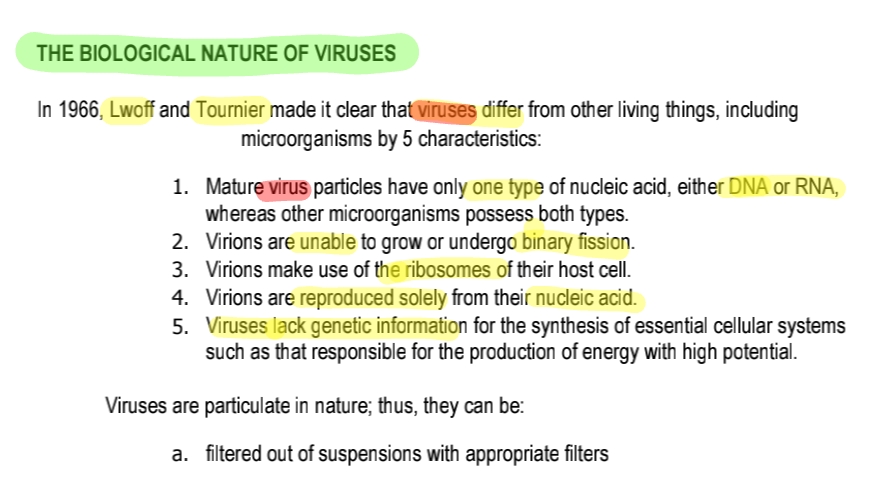What are the biological characteristics of viruses as described by Lwoff and Tournier in 1966?

Understand the Problem
The question refers to the characteristics that differentiate viruses from other microorganisms, as outlined by Lwoff and Tournier in 1966. It seeks to synthesize understanding of these differences, specifically the biological nature of viruses.
Answer
Viruses have one type of nucleic acid, can't grow or divide, use host ribosomes, reproduce from nucleic acid, and lack genetic info for energy synthesis.
The biological characteristics of viruses according to Lwoff and Tournier in 1966 are: 1) They contain only one type of nucleic acid: DNA or RNA. 2) They are unable to grow or undergo binary fission. 3) They use the host cell's ribosomes. 4) They are reproduced solely from their nucleic acid. 5) They lack genetic information for essential cellular system synthesis.
Answer for screen readers
The biological characteristics of viruses according to Lwoff and Tournier in 1966 are: 1) They contain only one type of nucleic acid: DNA or RNA. 2) They are unable to grow or undergo binary fission. 3) They use the host cell's ribosomes. 4) They are reproduced solely from their nucleic acid. 5) They lack genetic information for essential cellular system synthesis.
More Information
These characteristics highlight the dependence of viruses on host cells for reproduction and their difference from other microorganisms that can carry out cellular processes independently.
Tips
A common mistake is to assume viruses can perform cellular functions like other microorganisms. Remember, viruses depend entirely on their host for such processes.
AI-generated content may contain errors. Please verify critical information